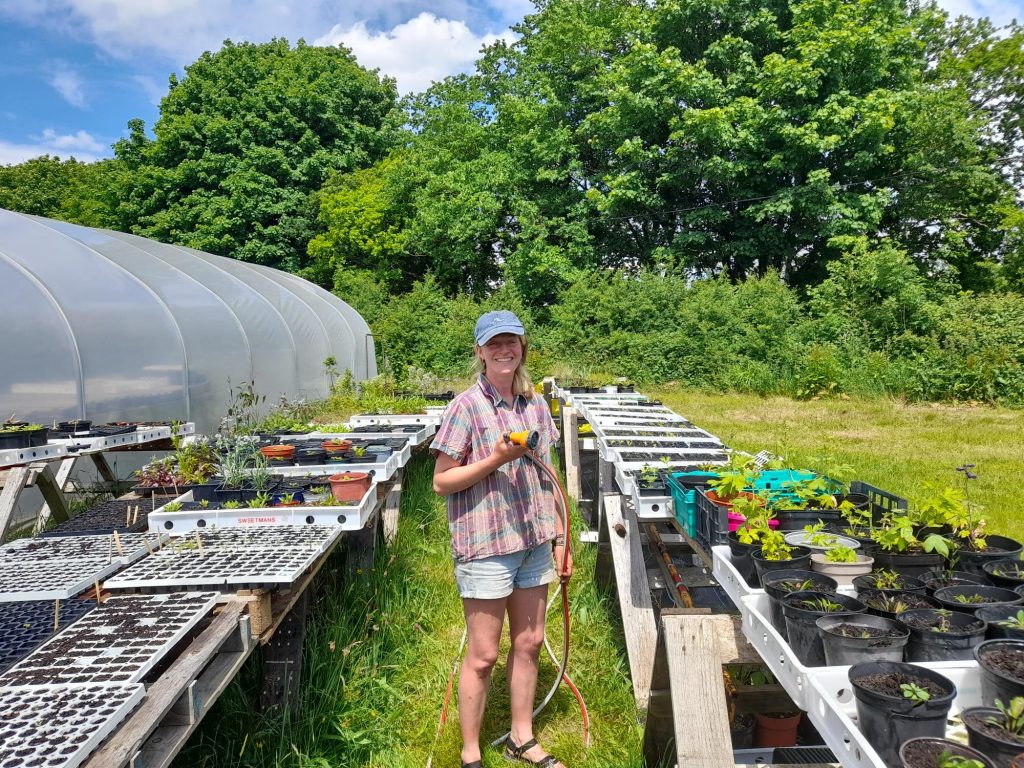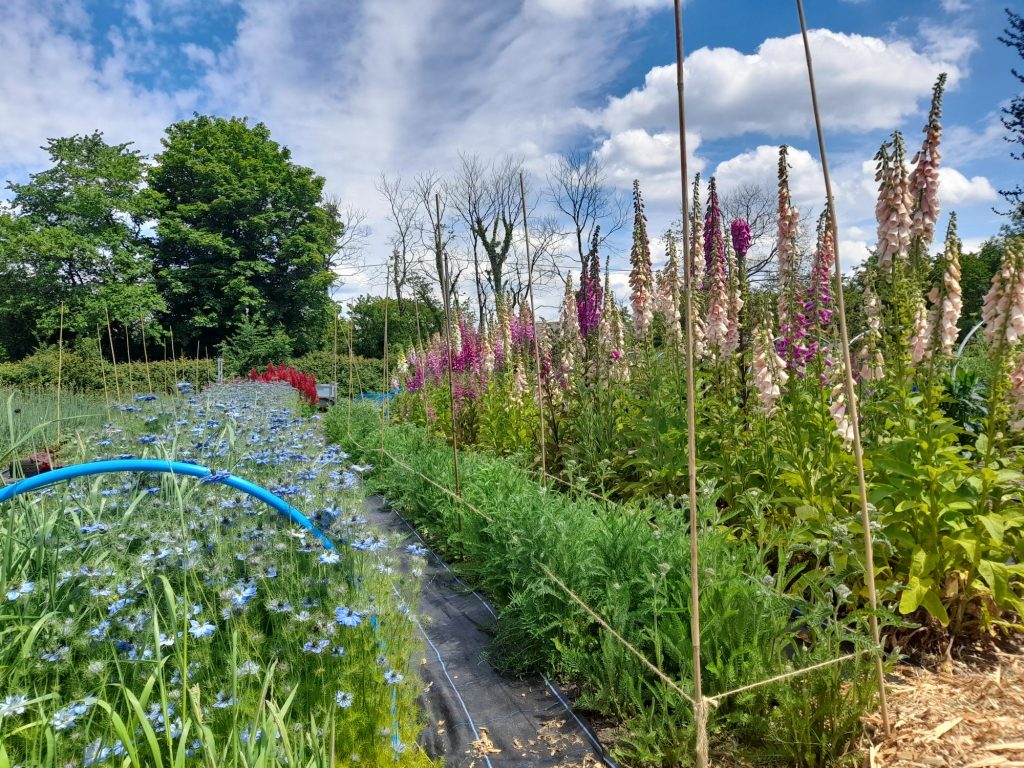We all know the arguments for buying fresh, local food, produced in harmony with the wider natural ecosystem. We know chemical treatments are bad; we know organic and natural processes are good; we know reducing the distance our food travels is vital to reduce our personal carbon footprint, as well as keeping our money circulating in the local economy. We know that packaging is a huge problem, and from seed to sale, the mainstream food industry has a long way to go in addressing sustainability.
Turns, out … all these arguments are equally valid for flowers!
Until the 1970s, 90% of the cut flowers used in the UK were home-grown. But while rising energy costs made it a struggle to heat UK glasshouses, the Dutch government invested in research and development in their flower industry – and provided subsidies for growers to buy large areas of land. The British flower grower became a rarity. Until recently, only 15% of the flowers sold in the UK’s floristry market (worth £2.2bn) were home-grown and 90% of those were sold in supermarkets.
This trend is slowly changing, as conscientious shoppers reach for a bunch of Fairtrade roses, then wonder if buying blooms flown in from Kenya or Columbia is really the most ethical choice.
Petallica Flower Farm began in February 2020, when Lizzie Walshaw teamed up with Josh Pike of Summit Good to rent a field next to our own Gower Regeneration solar site at Killan Farm, Dunvant.

Enjoying growing for Cae Tan but looking for more colour in her life, Lizzie began growing blooms at home as a hobby. “There’s such a massive world of flowers that you can grow, and experimenting with that is so much fun,” she says. Josh wanted space to plant vegetables, so the pair went into partnership. When Josh opened a successful Men’s Shed on the site, Lizzie’s interest in horticultural therapy inspired her to follow suit with a Women’s Shed, now hugely popular with visitors every Friday 10-12 who come for companionship, conversation and all the well-being benefits of working in the beautiful outdoors.
The first flowers went on sale July ’21, with pick-your-own blooms on sale to the public. A year later, Lizzie launched a CSA model, where members bought a share in the flower farm, receiving bi-weekly buckets of flowers in return for their investment.
A huge success, the CSA membership offer is open once again for 2022, with shares now on sale at £32.50 per month for 5 months.
Members tend to be people who appreciate having naturally, locally grown products, from a source they feel more connected to. Lizzie explains that buying flowers in a shop can feel “clinical”, with no relationship to the grower, the growing methods or the site. At Petallica, people can see where their flowers come from, learning about natural horticulture. Weeding is done by hand, using none of the problematic chemicals of the mainstream floristry industry. Pests are controlled through natural methods: woodchip paths that deter slugs, and natural predators like ladybirds, frogs and toads. “Chemical treatments upset the natural balance,” Lizzie explains, “so you’re always chasing your tail. Keeping things in balance means we really don’t have much problem with pests.” Rotating crops of annual blooms keeps the soil healthy, growing stronger plants that naturally withstand disease.
Seasonality is another interesting aspect. “People are used to having flowers all year round, but the idea that you can have roses in winter is a bit messed up!” Lizzie says. She believes it’s important for people to realise that they can’t always have what they want when they want – just as with food, importing adds hugely to a consumer’s carbon footprint, so we should learn to enjoy what we can get, when it’s available. And fortunately, Petallica has no shortage of carefully chosen flowers. “We have some beautiful native and wild flowers in the UK but they simply don’t last after cutting – they wilt and die very quickly. So we can’t limit ourselves to native species, but we do focus on those that are best suited to the local climate and conditions, and suitable for cutting, as well as popular with bees, ladybirds and other important insects.” Lizzie is also proud that her natural methods result in flowers more strongly scented than shop-bought varieties.
To provide floral joy all year round, Petallica also dries flowers, and has been experimenting to find what dries best, making the most of plants like Nigella and Honesty which provide attractive seed pods as well as blooms. Once dried, flowers can keep their colour for years, andhen they’re finally no good any more they can be composted, “unlike artificial flowers,” Lizzie adds, “which I can’t see any sustainability argument for at all!”
JOIN PETALLICA’S CSA SCHEME! – £32.50 per month, June to October. Collect your flowers in a reusable bucket every other Friday/Saturday/Sunday.
Email: petallicaflowerfarm@gmail.com.

















